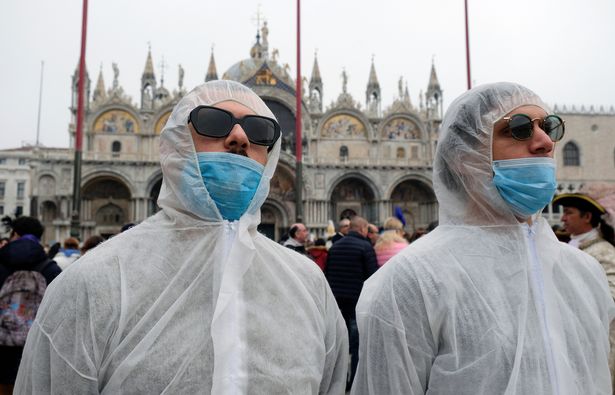Coronavirus travel advice for Brits who have holidays booked in affected destinations such as Thailand, Italy and Tenerife
Coronavirus outbreaks are continuing to hit destinations around the world, with people testing positive for the virus in the likes of Thailand, Italy and Tenerife.
For Brits who have holidays planned in the next few weeks, it’s casting doubts as to whether those travel plans will go ahead.
But what exactly do you do if you have a holiday planned and your destination is affected by a coronavirus outbreak?
Your first steps should be to check the FCO advice on your destination, and then get in touch with your travel firm to discuss your options – but to give you a helping hand, we’ve put together a guide below on what to do if your holiday destination is affected by coronavirus.
Check out the advice below…
(The information below is correct at the time of writing, but subject to change – you should check the FCO travel advice for your destination and get in touch with your travel firm before setting off). .
What to do if you have a holiday booked
Your first step should be to check the FCO travel advice, as this will affect what your travel firm and your travel insurer can do regarding changing your holiday or getting your money back.
We take a look at what to do below depending on the advice.
If the FCO advises against travel
If the FCO advises against travel to your destination, then your travel firm will get in touch to discuss your options – this may include rebooking your trip for a later date.
Even if you still want to travel, it’s best not to – not only will you be putting yourself at risk, but your travel insurance won’t be valid so you won’t be covered if you need help.
At the time of writing, the FCO currently only advises against travel to the below regions:
- China: The FCO advises against all travel to Hubei Province, as well as the rest of mainland China (not including Hong Kong and Macao).
- South Korea: The FCO advises against all but essential travel to Daegu and Cheongdo. These have been designated as ‘special care zones’ by the South Korean government following a growing number of cases of coronavirus.
You can see the updated list on the FCO website here. It’s worth noting that the FCO has stressed that it “is not advising against travel to any other country/territory as a result of coronavirus risks”.
If the FCO doesn’t advise against travel
Good news – your holiday can go ahead if the FCO isn’t advising against travel.
However, if only a portion of your holiday is affected, your travel firm may make some alternative arrangements. If there’s a significant change to your package holiday and you’re not happy, you can request a refund for the trip.
If you don’t want to travel because of coronavirus, then it gets a little more complicated.
As the FCO doesn’t advise against travel, your travel firm doesn’t need to refund you or offer an alternative travel date – and your travel insurance is unlikely to cover you for simply choosing not to travel.
However that doesn’t mean you’re automatically left out of pocket. It’s worth speaking to your travel firm as they are often more than willing to help find a solution, which could include rebooking to travel at a later date.
ABTA has put together a coronavirus guide for holidaymakers to explain their rights regarding package holidays.
You can find out more in our your rights if you cancel a holiday.
If you do travel, the World Health Organisation (WHO) has shared advice on how to protect yourself from the virus.
What to do if there’s an outbreak during your holiday
If you’re on holiday and the destination is hit by a coronavirus outbreak, you should check the FCO advice on your destination. Often they will advise that you follow rules from the local authorities.
You should also follow the WHO’s advice on how to protect yourself from the virus.
If you decide to travel back earlier than planned, you’re unlikely to get compensation – however, it’s worth checking your travel insurance policy, or getting in touch with your provider to find out if you are covered for the exceptional circumstance.




